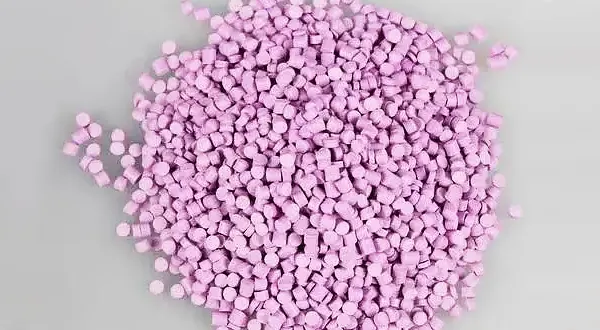Hawaii
Plastic injection molding for Hawaii
Receive top-tier engineering services from a seasoned manufacturer with a track record of professionalism and excellence.
Custom Parts, On Demand Manufacturing
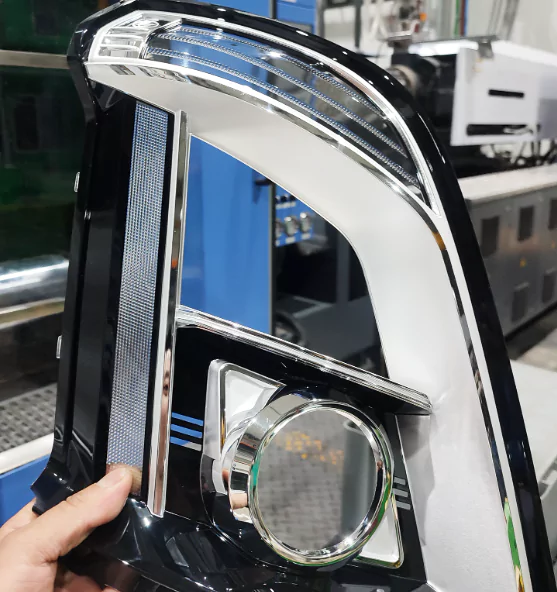
Explore our premier Plastic injection molding services in Hawaii
specializing in plastic prototypes and production parts.
Welcome to CapableMachining, your premier provider of high-quality plastic injection molding services. With years of experience in the industry, we specialize in producing custom plastic components for a wide range of applications. Our state-of-the-art facility is equipped with advanced machinery and technology to ensure precision and efficiency in every project we undertake. Whether you need prototyping, short-run production, or high-volume manufacturing, our team of skilled professionals is dedicated to delivering top-notch results that meet your specifications and exceed your expectations. At CapableMachining, we are committed to providing cost-effective solutions and quick turnaround times without compromising on quality. Contact us today to discuss how we can help bring your plastic injection molding projects to life.
Why Choose Us?
Our ability to provide on-demand manufacturing services means not only having strong manufacturing capabilities but also services that can produce complex end-use parts quickly, efficiently, and intelligently.
Our services
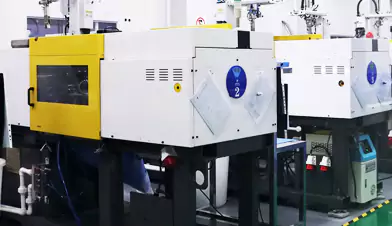
Injection molding stands as the predominant approach for mass-producing plastic goods. This method involves melting plastic, injecting it into molds, ejecting the finalized product, and then repeating the cycle.
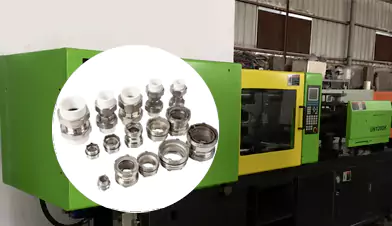
Insert molding proves to be a highly practical injection molding technique that enhances the strength or other properties of the final part by integrating additional materials.
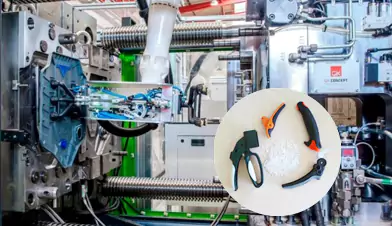
Overmolding is a process where various materials are layered to create a composite article. Typically, this method entails injecting a base material over one or more pre-existing parts to integrate them into a unified whole.
Other services
Capabilities
Tolerances
Heavily depending on the plastic type and the size of the part, typically +/- 0.15mm or +/-0.006 inch
Mold Life Cycle
Typically 300,000, and 600,000 if required.
Leading Time
Typically: tooling 30 days, injection molding 3 days
Injection Material
Most of the thermal plastic, ABS, HDPE, PE, PC, PMMA, PA6, PA66, POM, PBT, PET, PVC TPU, TPE, Silicone Rubber… Learn More >
Materials
Handpicking the right material is acute, not only for factors such as cost, processing complexity, and potential surface treatments but also for the ultimate quality of the product. Our practiced engineering team specializes in proactively addressing this challenge, even before an order is placed. This process checks that our customers have the unwavering faith in the final quality of their products.
Rigid Materials
Rigid plastic materials are defined as materials that signify primarily no elastic deformation and no complete plastic deformation. Wemaintain long-term cooperation with quality suppliers, which enables us to provide quality assurance to our customers as well as to attend to varied particular needsof our customers.
Our Quality Control
CapableMachining boasts a well-established quality assurance framework and a team of competent technical engineers who diligently oversee every aspect of our product manufacturing process – from sourcing high-quality unprocessed components to delivering impeccable finished goods that encompass metals and plastics. To keep our commitment to superiority, we extensively utilize cutting-edge testing technology and cutting-edge equipment to meticulously evaluate crucial parameters such as workpiece dimensions, hardness, tensile strength, and elongation at every stage of production. We labor to maintain utmost control over these data points to meet and surpass the expectations of our esteemed clientele consistently.

Professional quality control Engineer

Tolerances up to ±0.0004″ (0.01mm)

State-of-the-art Inspection Facilities

Proven and reliable quality control system.
Gallery of Parts

Charging Plug
Material: ABS

Industry equipment part
Material: PEEK

Telecom equipment part
Material: PA66

Auto bumper
Material: ABS

UAV blades
Material: PPA + 30 Carbon Fiber

Medical container
Material: PE
Other capabilities

- Free & Automatic DFM feedback
- Tolerances: typically +/- 0.15mm or +/-0.006 inch
- Tooling: 30 days

- Free advices from high trained engineers.
- Quotation in a few hours.leading time 3 days
- Fast delivery time

- Tolerances: typically +/- 0.15mm or +/-0.006 inch
- Free consultant ,Free DFM feedback
- Casting lead time: 5~7 days

- Wide range of material choices
- Free consultant from engineers
- Fastest leading time: 1 day

- Free & Automatic DFM feedback
- Tolerances up to ±0.00078″ (0.02mm)
- Rapid tooling: 7~12 days
How do find our location?
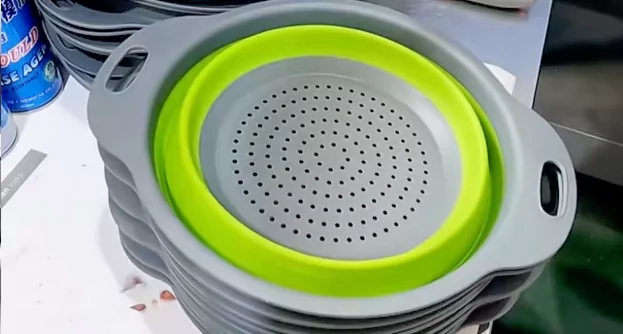
Other Location Near me
FAQ
Introduction
Plastic injection molding is a widely used manufacturing process in Hawaii, producing a wide range of products for various industries. Understanding the key concepts and terminology associated with plastic injection molding is essential for those looking to utilize this process effectively. In this article, we will present 10 pairs of questions and answers to help clarify some common queries related to plastic injection molding in Hawaii.
Q: What is plastic injection molding?
A: Plastic injection molding is a manufacturing process that involves the melting of plastic resin pellets and injecting them into a mold cavity. Once the plastic has cooled and solidified, the mold is opened, and the finished product is ejected.
Q: What types of plastics can be used in injection molding?
A: A wide variety of plastics can be used in injection molding, including thermoplastics and thermosetting plastics. Common materials include polyethylene, polypropylene, and polycarbonate.
Q: What are the advantages of plastic injection molding?
A: Plastic injection molding offers several benefits, such as high production efficiency, design flexibility, and the ability to produce complex shapes and intricate details.
Q: How does plastic injection molding impact the environment?
A: Plastic injection molding can generate waste and emissions, but steps can be taken to reduce its environmental impact, such as recycling scrap plastic and implementing energy-efficient practices.
Q: What are some common challenges in plastic injection molding?
A: Some common challenges in plastic injection molding include mold design issues, material selection problems, and quality control concerns.
Conclusion
In conclusion, understanding the basics of plastic injection molding can help businesses in Hawaii make informed decisions about their manufacturing processes. By addressing these 10 pairs of questions and answers, individuals can gain a better grasp of the key concepts and considerations related to plastic injection molding. Whether producing consumer goods, automotive parts, or medical devices, plastic injection molding plays a crucial role in the manufacturing industry in Hawaii.


